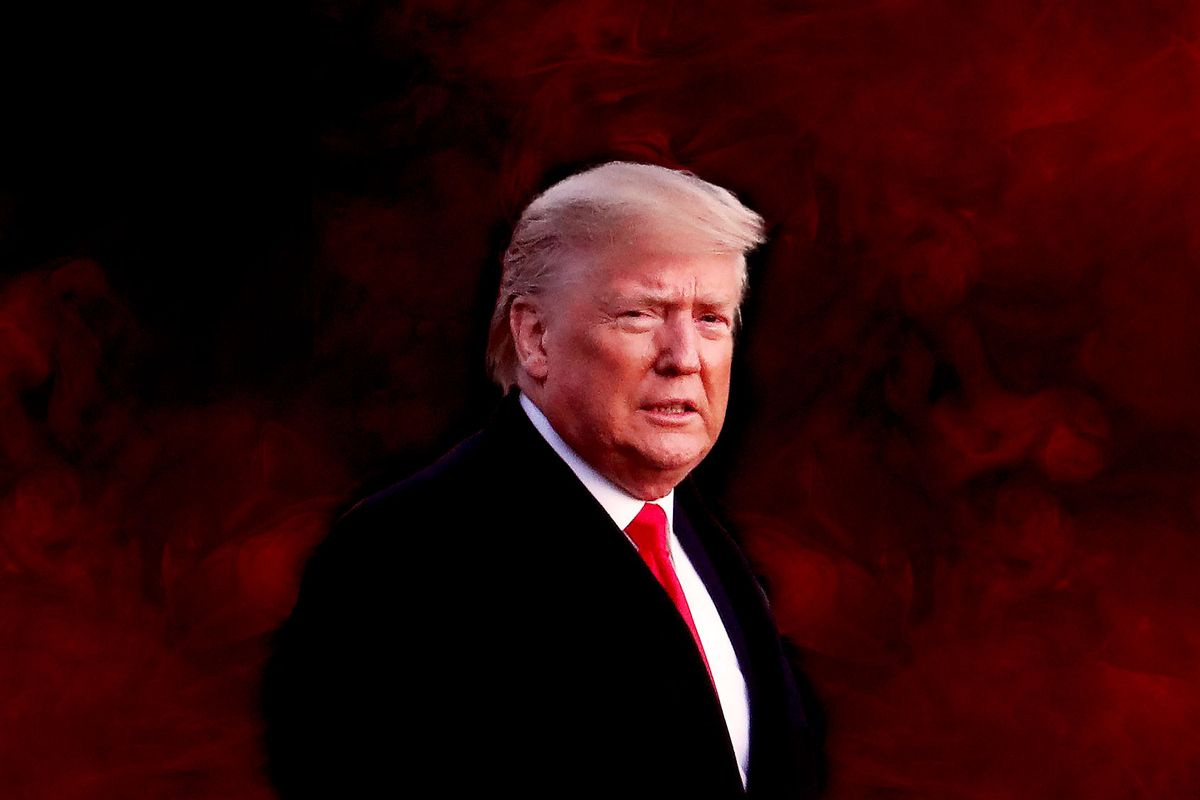Trump indicted in Manhattan over Stormy Daniels hush-money payment

According to multiple media reports, a Manhattan grand jury has voted to indict Donald Trump on charges related to the 2016 hush-money payment to adult film actress Stormy Daniels. Assuming this indictment actually occurs, Trump will become the first former president in American history to be formally charged with a crime.
The specific charges filed against Trump are not yet known, but reports suggest that a felony indictment was filed by prosecutors with the Manhattan district attorney’s office shortly before 5 p.m. Eastern time on Thursday. In the days ahead, prosecutors will likely negotiate the terms of Trump’s surrender with the former president’s defense team, and he will be compelled to appear for arraignment at the Criminal Courts Building in lower Manhattan.
Thursday’s apparent indictment follows a years-long investigation into former Trump fixer and lawyer Michael Cohen’s $130,000 wire payment to Daniels amid the 2016 presidential campaign. Cohen later testified that Trump reimbursed him for the payment. The investigation began under a previous Manhattan DA, Cy Vance, and has continued under current DA Alvin Bragg, who has at times been the object of speculation that he was reluctant to seek a criminal indictment.
Now that the indictment has been filed, the obvious next steps will be Trump’s surrender and arraignment. It is likely that special consideration will be extended to such a high-profile defendant, but the specifics remain to be seen. Trump may or may not be handcuffed during the arrest process, and may or may not be briefly incarcerated after his arrest. Throughout the process, he will be continuously accompanied by armed Secret Service agents, who are required to protect him at all times. Since these charges clearly involve nonviolent felonies, Trump will likely be released on his own recognizance while awaiting trial.
This indictment has been widely anticipated, although its timing comes as a modest surprise. Many observers believed the Manhattan grand jury was likely to adjourn for several weeks without voting on an indictment. Trump himself declared on Truth Social earlier this month that he would soon be arrested and called for his supporters to “protest” the indictment. Critics quickly drew comparisons between Trump’s call for protest to his rhetoric ahead of the deadly Jan. 6 Capitol riot. On his Truth Social platform, Trump pushed back on calls from allies for his supporters to remain “peaceful,” accusing Bragg and the “radical left” of destroying the country.
Bragg’s strategy in the case has prompted some concern among legal experts. Falsifying business records, as Trump allegedly did by reporting the payment to Cohen as a legal expense, is a misdemeanor in New York, but prosecutors may escalate to felony charges if they can show “intent to commit or conceal a second crime,” in this case a violation of New York campaign finance laws. But legal experts say the legal theory is largely untested and that charges could be struck back down to a misdemeanor at a pretrial hearing.
Vance, the previous district attorney, launched the probe into the hush-money payment to Daniels before it sprawled into a larger investigation of Trump’s business practices. After taking over the office, Bragg initially appeared to back off the hush-money probe as he successfully prosecuted the Trump Organization and its longtime CFO Allen Weisselberg for tax crimes. Bragg restarted the hush-money probe and empaneled a new grand jury after the conviction.
Trump could face up to four years in prison if he is convicted of a felony.
Trump’s attorney Joe Tacopina has argued in television appearances that the payment was intended to avoid embarrassment for Trump and his wife Melania and was unrelated to the campaign. He has also claimed that Trump was the “victim” of an “extortion” attempt by Daniels. Trump attorneys have also attacked Cohen’s credibility, citing his false claims about the payment while he still worked for Trump.
Some legal experts have expressed doubt that Bragg can convict Trump in the case.
Want a daily wrap-up of all the news and commentary Salon has to offer? Subscribe to our morning newsletter, Crash Course.
“This case is a joke, frankly, and I’ve litigated against that office for 33 years,” longtime New York criminal defense attorney Jeffrey Lichtman, who once represented Mexican drug lord El Chapo, told Rolling Stone. “I don’t think that case is winnable.”
Randy Zelin, a former criminal defense attorney and prosecutor, also told the outlet he does not believe the “felony charge will stick.”
“I think that the district attorney’s office in New York County is running a great risk of diluting the strength of other potential cases brought by other prosecutors, because this is a weak case — legally, it is a weak case,” he said.
But other legal experts pushed back on that argument.
“It doesn’t make it a weak case if you look at it from the perspective of a prosecutor — you bring your case when it is ready,” former U.S. attorney Chuck Rosenberg told MSNBC. “So it would be a political decision to bring it too soon for some other purpose or to wait for some other purpose. If the case is ready, and as the elected prosecutor in Manhattan, you believe it is an appropriate charge, you bring it. It may be less serious than the other cases out there, but that doesn’t make it weaker.”
Terri Gerstein, a former prosecutor in Bragg’s office, office, said that Bragg would never bring the case unless he expected to win.
“Alvin is not someone who would bring a weak case,” Gerstein told Vanity Fair. “He follows the law and the facts without fear or favor.”
Read more
about Trump’s path to indictment

